Junkyard Gem: 1984 Buick Skyhawk Custom Sedan

Many laughed in 1982 when GM’s Cadillac Division began selling the Cimarron, essentially a luxed-up Chevy Cavalier, at about twice the Cavalier’s price. One rung below Cadillac on GM’s Ladder of Success, the Buick Division got its own version of the Cavalier at the same time: the Skyhawk. Nobody laughed at the 1982-1989 Skyhawk’s respectable sales figures. We saw an ’85 Skyhawk coupe in a California boneyard last winter, and now here’s an example of the sedan version in Colorado.
This was the second generation of the Buick Skyhawk name, the first being applied to a Buick-ized version of the Chevrolet Monza during the 1975-1980 model years. That Skyhawk was available solely as a sleek two-door hatchback.
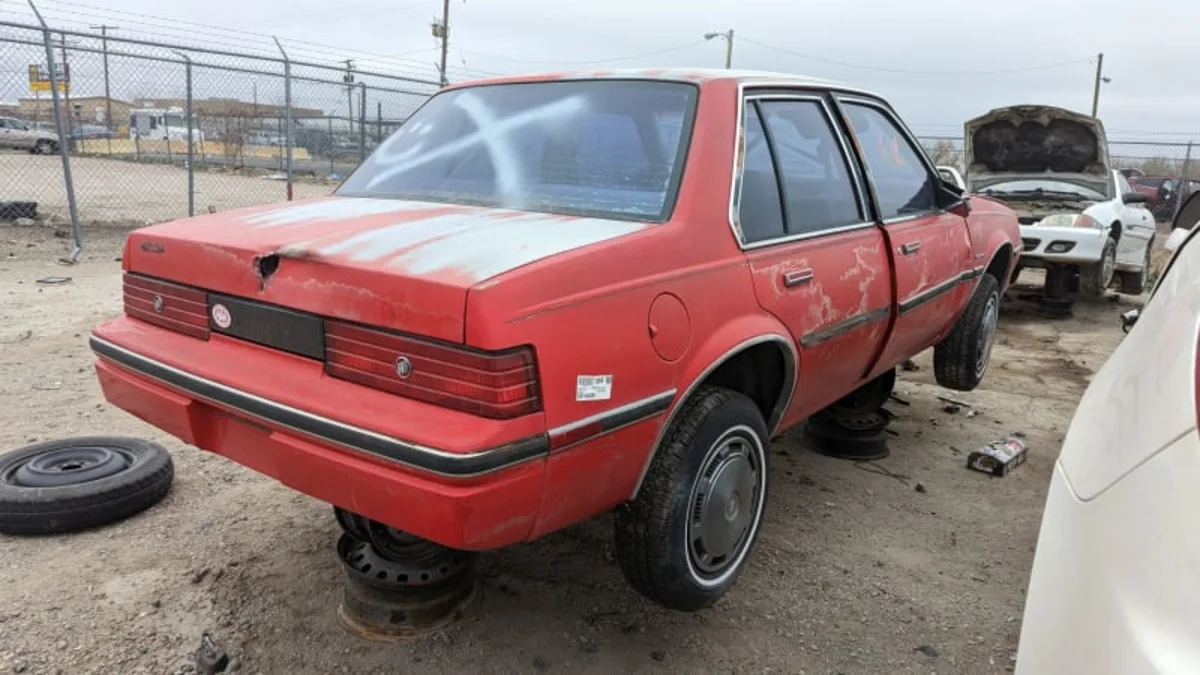
This generation of Skyhawk could be purchased in coupe, sedan, hatchback (1986-1987 only) and wagon (1983-1989 only) form, with the coupe proving to be the most popular.
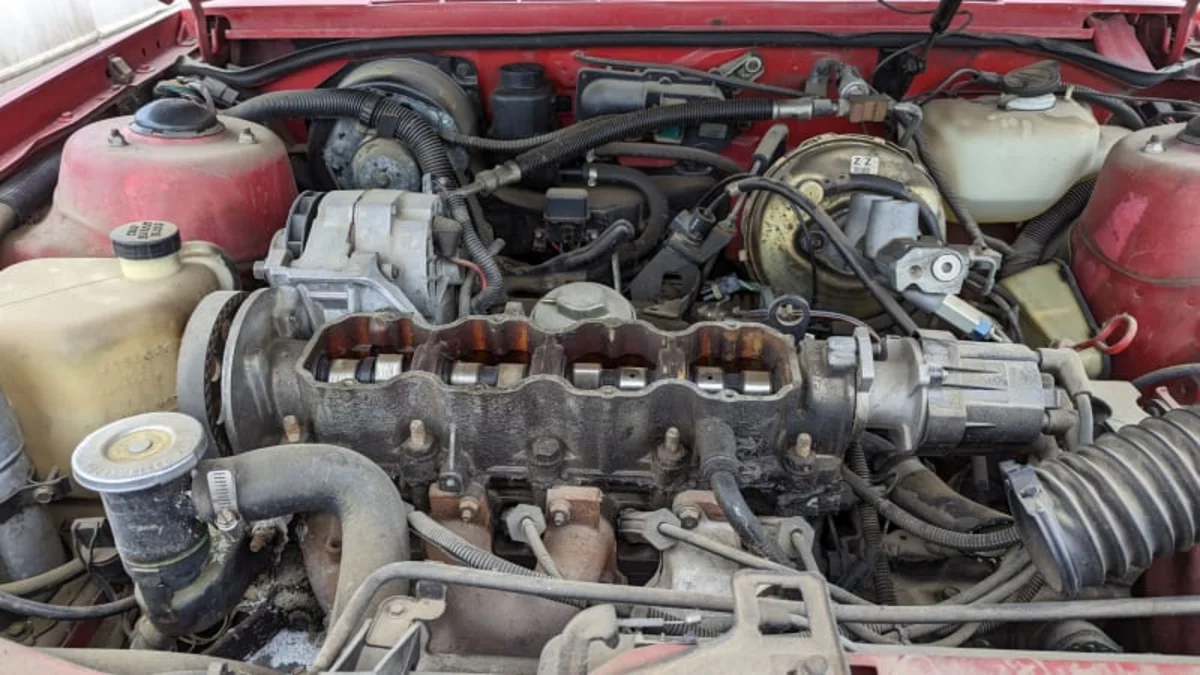
For the 1984 model year, the base Skyhawk engine was the 2.0-liter pushrod four-cylinder from the Cavalier, rated at 86 horsepower and 110 pound-feet. If you opted for a five-speed manual or three-speed automatic transmission instead of the base four-on-the-floor manual, you could spend an extra 50 bucks (about 149 bucks in 2023 money) to get this higher-revving, Opel-designed/Brazilian-made 1.8-liter SOHC four-banger with 84 horsepower and 102 pound-feet. A turbocharged version of this engine with 150 horses was available on the Skyhawk T-Type.
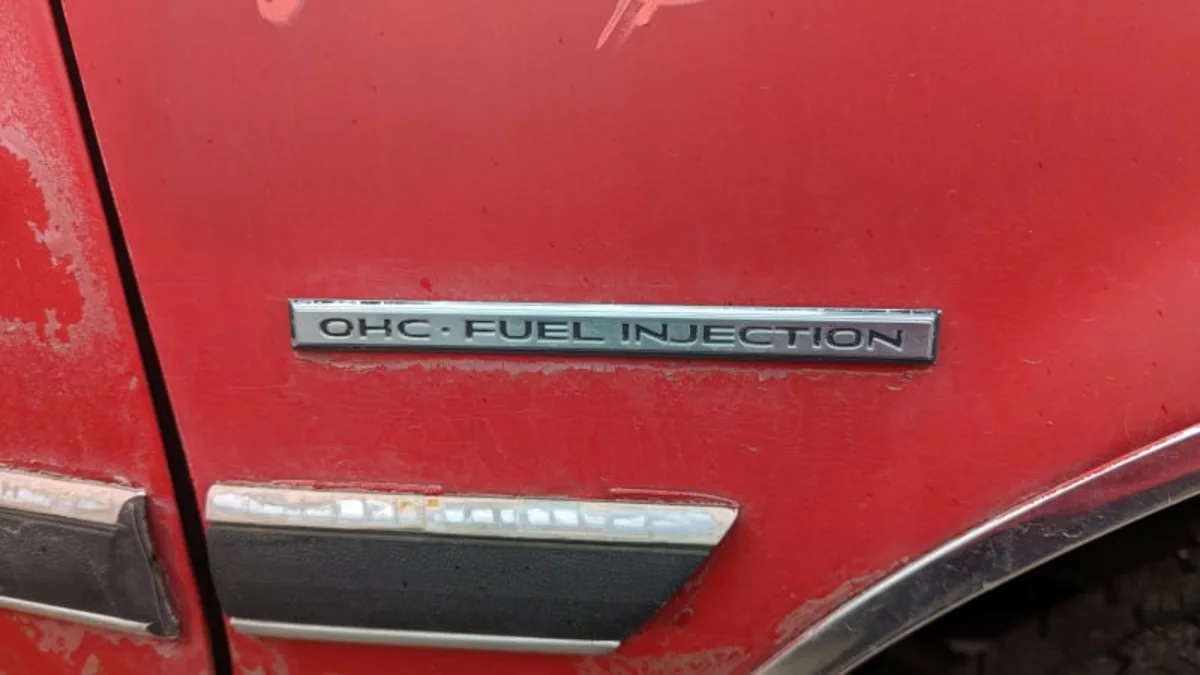
Buick was proud of both the overhead cam and the electronic fuel injection in this car, applying these badges to brag a bit.
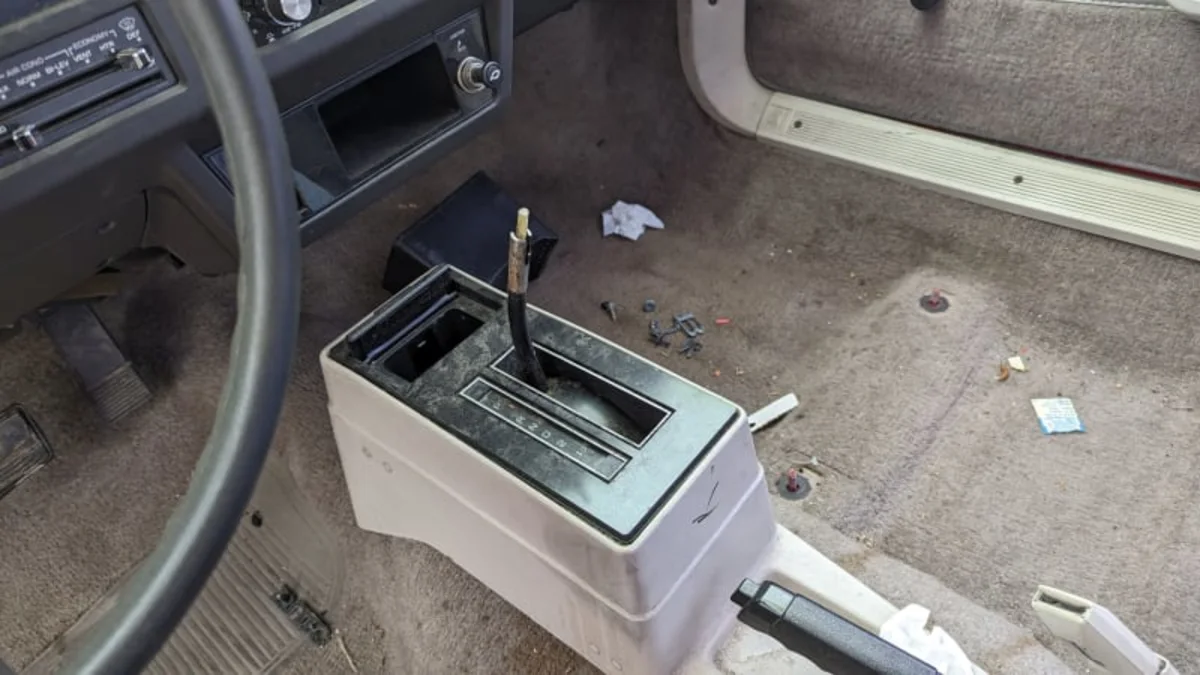
You’d have thought that a buyer sacrificing torque for a better-breathing engine would have selected a manual transmission, but such was not the case with this car. The three-speed TH125 slushbox cost $395, or about $1,179 after inflation.
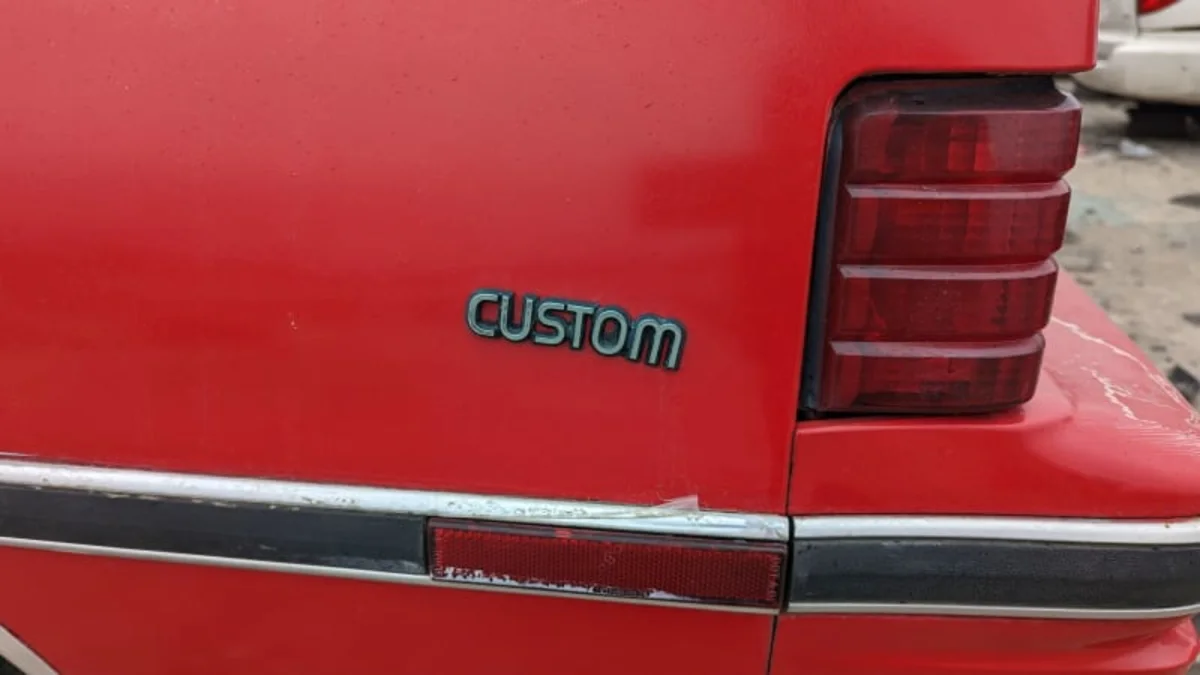
The cheapest ’84 Skyhawk trim level was the Custom. The MSRP on this car was $7,345 ($21,922 now) before options. Its Chevy Cavalier sibling started at $6,214 ($18,546 today), while its Pontiac 2000 Sunbird and Olds Firenza counterparts were $6,791 and $7,293, respectively ($20,268 and $21,766 in 2023 dollars). Meanwhile, the King of J-Bodies, the Cadillac Cimarron, listed at $12,605 ($37,620 today) in 1984.
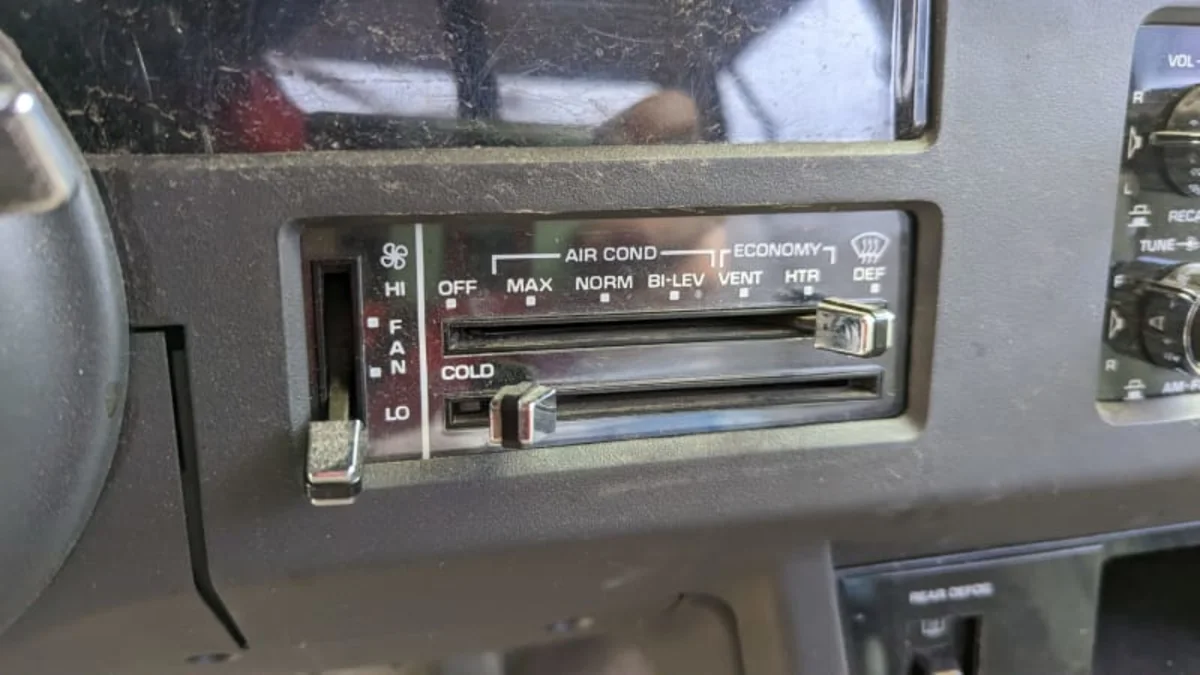
That $7,345 sticker price didn’t include plenty of features we now take for granted in new cars. If you wanted air conditioning in your new Skyhawk, as nearly every Buick buyer in 1984 did, the cost was $630 ($1,880 after inflation). Power steering, which is nice to have in front-wheel-drive machinery, cost an extra $204 ($609 today).

Power windows? Sorry, not in this car, because the original owner didn’t want to spend $260 ($776 now) for them.
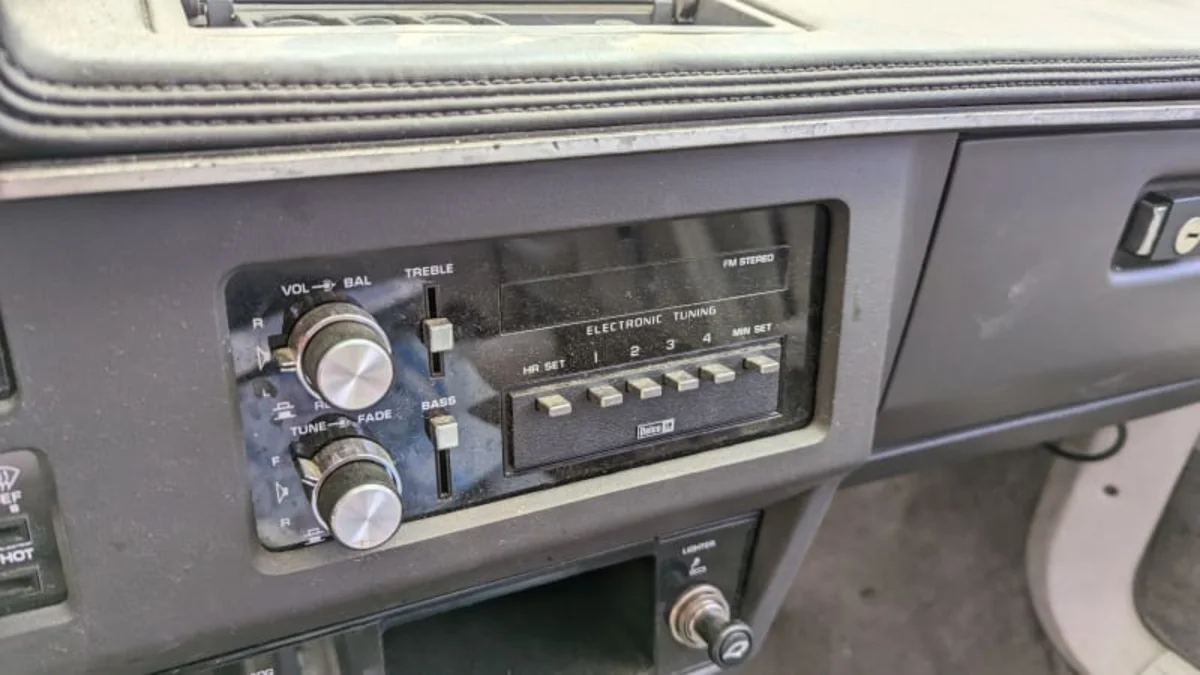
1984 Skyhawk buyers did get a radio as standard equipment, but it was AM-only with two scratchy speakers. This car has the optional AM/FM four-speaker Delco radio, which cost a startling $302 ($901 today).
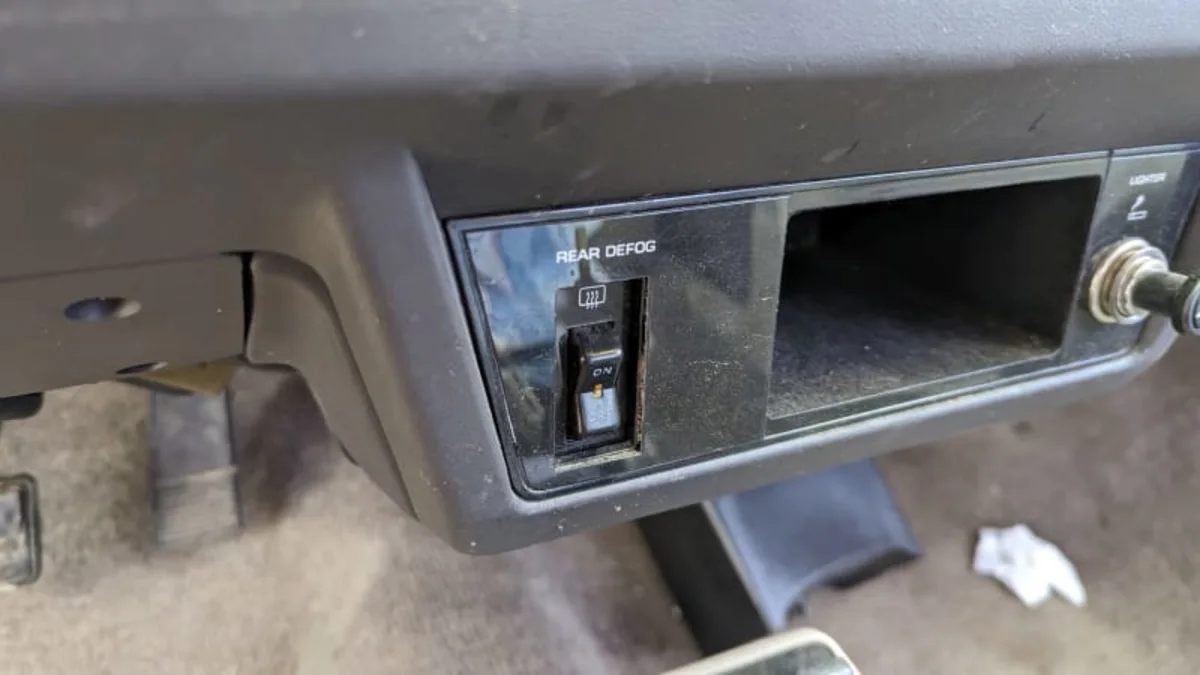
Rear defogger? That’ll be $130, please ($388 today). I could go on, but it’s clear that the main reason cars of this era seem so cheap is that the real-world out-the-door cost was always much higher once you added the features that nearly everyone insisted on having.
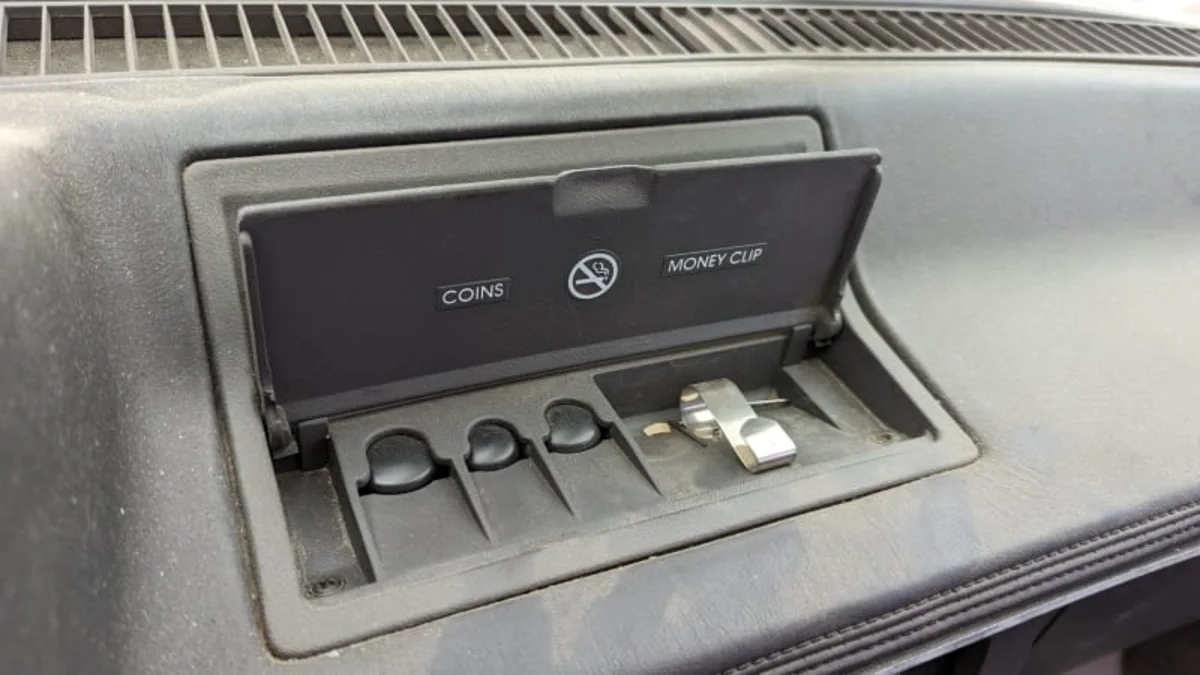
The money clip next to the coin dispenser made things simple for smash-the-window-and-grab-stuff thieves.
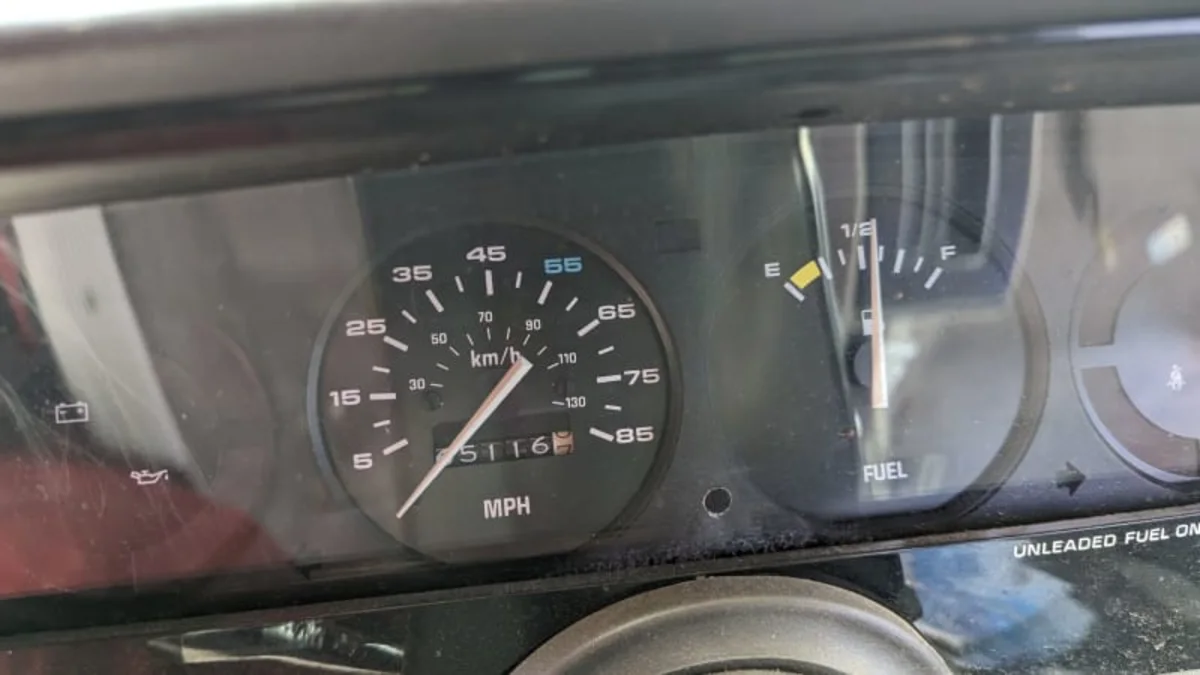
The five-digit odometer makes it impossible to know the true mileage of this car. It looks to have been well cared-for, with front seats nice enough that a junkyard shopper bought them. Perhaps those seats were used as a bolt-in Cavalier upgrade.
The sedan handles as beautifully as its looks impress, and its owners materialize out of thin air to admire it.
The ads for the coupe were aimed at a much younger demographic.
Related video:



